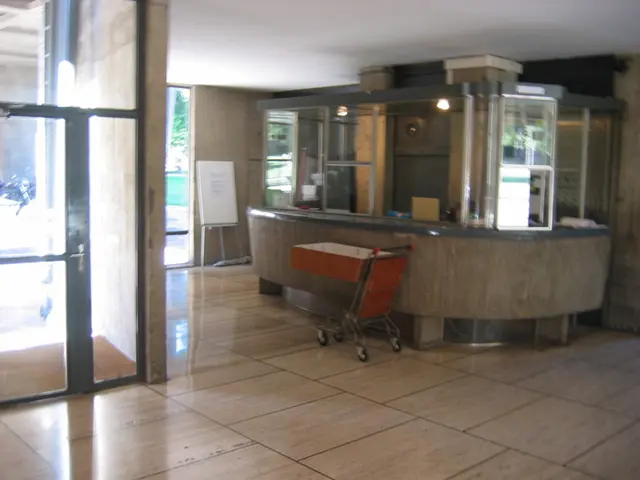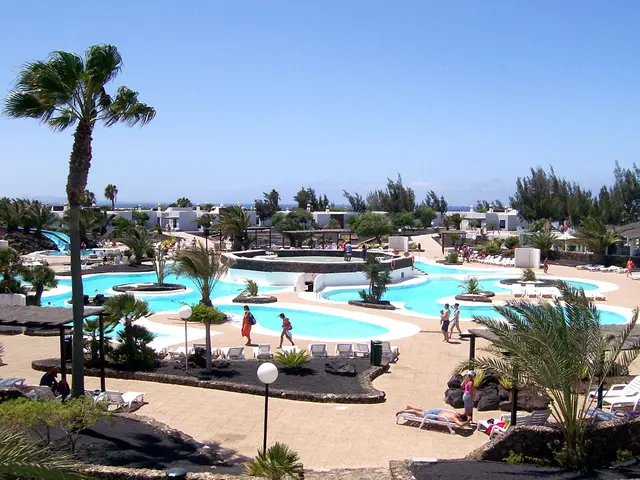Impact of Deceptive Hotel Reviews on Travel Experiences
In the digital age, the internet has become a go-to source for travel recommendations, with online reviews playing a significant role in shaping our choices. However, the rise of AI and professional agencies offering fake reviews as a service has made identifying these deceptive posts increasingly challenging.
While AI-supported methods exist to detect fake reviews, they may not be an affordable option for smaller providers, necessitating manual testing. Despite this, it's essential to remain vigilant when sifting through hotel reviews, as fake reviews remain a widespread issue.
So, how can one spot a fake hotel review? Here are some key indicators to help you:
1. Overly Positive or Negative Language: Fake reviews often use overly positive or negative language without providing specific details. Genuine reviews typically balance praise with constructive criticism.
2. Lack of Specific Details: Genuine reviews usually include specific details about the experience, such as hotel amenities, staff interactions, or nearby attractions. Fake reviews might be vague or lack concrete examples.
3. Unrealistic or Unusual Timing: Look for reviews posted at unusual times or in clusters. This could indicate a coordinated effort to manipulate ratings.
4. Profile Inconsistencies: Check the reviewer's profile. Fake reviews may come from profiles with little or no history, photo-less profiles, or generic names.
5. Inconsistencies with Official Information: Sometimes, fake reviews mention features or services that the hotel does not offer. Verify these details with the hotel's official website or contact them directly.
To verify reviews, consider the following steps:
- Read Multiple Reviews: Look for a balanced mix of positive, negative, and neutral comments. - Check Reviewer History: See if the reviewer has a history of posting legitimate-looking reviews for other businesses. - Use Review Filtering Tools: Some platforms allow you to filter reviews based on specific criteria like "verified guest" or "most helpful." - Contact the Hotel Directly: If you’re unsure, contact the hotel to confirm any details mentioned in a review.
Anonymous comments should also be viewed with skepticism. Indications of fraud in reviews may include similar formulations or phrases, many reviews in a short time, especially if they are all very positive or negative, and lack of details or excessive details.
AI bots can also play a role in the creation of reviews. They are responsible for numerous reviews and are increasingly used by hotels to cope with the increasing number of guest inquiries, with answers tailored to the tone of the respective accommodation. However, beware of reviews with poor writing style, as automatic translators may be used.
It's important to note that simply deleting fake reviews can backfire on the hotel, as the burden of proof lies with the hotel. Positive reviews may be bought under certain conditions, but negative reviews for competitors are prohibited.
Recent studies, such as the 2022 study by the European Commission, have highlighted the scale of the problem with fake internet reviews. Around 55 percent of the analyzed online shops, marketplaces, booking websites, search engines, and price comparison services raised doubts about the reliability of the reviews.
In conclusion, with a combination of critical thinking and attention to specific red flags, you can more effectively identify and avoid fake hotel reviews, ensuring a more informed and enjoyable travel experience.
When sifting through hotel reviews, keep an eye out for overly positive or negative language without specific details, as this could be a sign of a fake review. In addition, be wary of reviews that are inconsistent with official hotel information or contain a lack of specific details about the travel experience.





